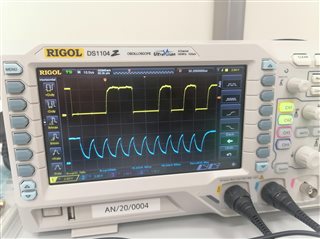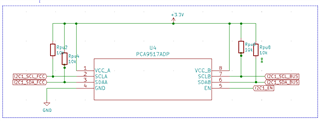I am trying to send data from my STM32H7 board (Master) to my MSP430FR2433 (Slave) through I2C but with no luck.
I tried to imitate the MSP430 Master-Tx example code into the STM32 and I tested it on Arduino and it works. Also, I'm sure my MSP430 Slave-Rx code is correct, I tested it by sending data from another MSP430 and it works.
Any suggestions on what the problem could be?




